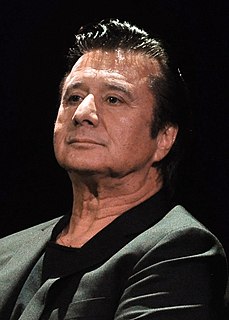A Quote by Samuel Johnson
I had done all that I could, and no Man is well pleased to have his all neglected, be it ever so little.
Related Quotes
Well. There was noting to be done for it. Things had happened as they did, time's arrow had yet to be reversed by humans, done was done. If a man spent his life looking over his shoulder at every possible branching of his path he could have taken, he would never accomplish anything. One must learn from history so as not to repeat it, but one must not waste one's energy or time worrying about what might have been. Sorry . . . but people die every day and the galaxy continues on quite well without them. Consider yourself lucky you are one of those as yet unselected by the Fates.
No thoughtful man ever came to the end of his life, and had time and a little space of calm from which to look back upon it, who did not know and acknowledge that it was what he had done unselfishly and for others, and nothing else, that satisfied him in the retrospect, and made him feel that he had played the man.
Every man is proud of what he does well; and no man is proud of what he does not do well. With the former, his heart is in his work; and he will do twice as much of it with less fatigue. The latter performs a little imperfectly, looks at it in disgust, turns from it, and imagines himself exceedingly tired. The little he has done, comes to nothing, for want of finishing.
The crucifixion saved him [Jesus]. He never had to deal with the fact that the kingdom of God wasn't ever going to come. His disciples, of course, had to deal with it, and little by little they had to realize that it's a metaphorical thing. Well, that's not what Jesus meant. I'm fairly sure he meant it literally. But he must have been the most fascinating man.
They were kissing. Put like that, and you could be forgiven for presuming that this was a normal kiss, all lips and skin and possibly even a little tongue. You'd miss how he smiled, how his eyes glowed. And then, after the kiss was done, how he stood, like a man who had just discovered the art of standing and had figured out how to do it better than anyone else who would ever come along.
It is hard to see how a great man can be an atheist. Without the sustaining influence of faith in a divine power we could have little faith in ourselves. We need to feel that behind us is intelligence and love. Doubters do not achieve; skeptics do not contribute; cynics do not create. Faith is the great motive power, and no man realizes his full possibilities unless he has the deep conviction that life is eternally important, and that his work, well done, is a part of an unending plan.
For although a man is judged by his actions, by what he has said and done, a man judges himself by what he is willing to do, by what he might have said, or might have done—a judgment that is necessarily hampered, not only by the scope and limits of his imagination, but by the ever-changing measure of his doubt and self-esteem.
Was his life nothing? Had he nothing to show, no work? He did not count his work, anyone could have done it. What had he known, but the long, marital embrace with his wife. Curious, that this was what his life amounted to! At any rate, it was something, it was eternal. He would say so to anybody, and be proud of it. He lay with his wife in his arms, and she was still his fulfillment, just the same as ever. And that was the be-all and the end-all. Yes, and he was proud of it.
In his scientific genius, man has wrought material miracles and has transformed his world. He has harnassed nature and has developed great civilizations. But he has never learned very well how to live with himself. The values he has created have been predominantly materialistic; his spiritual values have lagged far behind. He has demonstrated little spiritual genius and has made little progress toward the realization of human brotherhood. In the contemporary atomic age, this could prove man's fatal weakness.





































